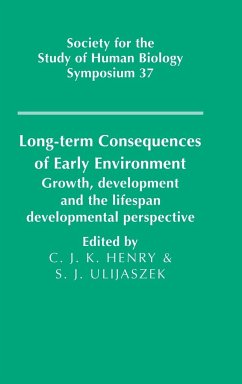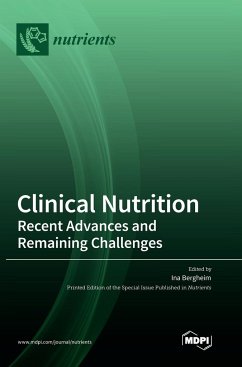
Effects of Early Nutrition on Premature Infants
Versandkostenfrei!
Versandfertig in 1-2 Wochen
56,99 €
inkl. MwSt.

PAYBACK Punkte
28 °P sammeln!
Malnutrition, both intrauterine and extrauterine, has long been recognized as a significant factor in changes in brain development, leading to delays in the development of children and adolescents. The link between growth and development is well established, and the prevalence of malnutrition is increasing, particularly in low- and middle-income countries. This trend is often due to socioeconomic challenges such as inadequate prenatal care, insufficient vaccination, low caloric and protein intake, and prematurity. In developed countries, intrauterine malnutrition is also a concern, primarily d...
Malnutrition, both intrauterine and extrauterine, has long been recognized as a significant factor in changes in brain development, leading to delays in the development of children and adolescents. The link between growth and development is well established, and the prevalence of malnutrition is increasing, particularly in low- and middle-income countries. This trend is often due to socioeconomic challenges such as inadequate prenatal care, insufficient vaccination, low caloric and protein intake, and prematurity. In developed countries, intrauterine malnutrition is also a concern, primarily due to pregnancy-related issues like assisted fertilization, multiple pregnancies, and pre-eclampsia. Additionally, low intake of essential nutrients necessary for proper brain development affects individuals in both affluent and affected countries. Malnutrition is a pressing global public health issue that exacerbates the gap between poor and rich nations in terms of somatic growth and neurodevelopment. To address this, it is crucial to conduct further research into the consequences and prevention of malnutrition, with a particular focus on its nutritional effects on this vulnerable population.












